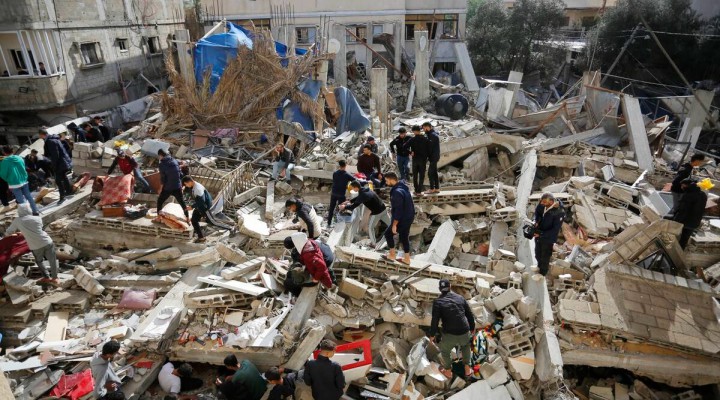International diplomacy facilitates Israel’s colonial expansion

The death toll in Gaza as a result of Israel’s latest bombardment now tallies over 13,300, out of which 5,600 are children. Israel cannot even construct a hypothesis that its aggression is the elimination of Hamas and, yet, the fabricated security narrative is all the international community is clinging to in its diplomatic speeches. Ethnic cleansing and genocide have yet to reach diplomats’ vocabulary.
“This must stop. I reiterate my call for an immediate humanitarian ceasefire,” UN Secretary-General, Antonio Guterres, stated, citing “a staggering and unacceptable number of civilian casualties”. Apart from illustrating how entrenched the UN is in allowing human rights violations and war crimes to take place, the statement is also indicative of how the UN turns a blind eye to acceptable “civilian casualties” and how Israel keeps pushing the boundaries for normalising the statistics of killing Palestinian civilians.
The EU’s Foreign Affairs High Representative, Josep Borrel, fared no better in his intervention at the Manama Dialogue in Bahrain. “No more terrorist attacks from Gaza and against Israel, and this means that Hamas cannot be in control of Gaza any longer,” Borrell declared, amid rambling about humanitarian concerns and the two-state paradigm. Besides the usual rehashing of earlier diplomatic attempts, which include proposing the Palestinian Authority takes control of Gaza, Borrel mentioned “red lines that we have to define” – that there be no re-occupation of Gaza and no forced displacement of Palestinian civilians. Of course, there was no mention of how the EU would work towards these red lines – mentioning them for PR purposes was enough.
Not to mention that Borrel insisted there be “no separation from the Territory of Gaza from the West Bank and east Jerusalem” because there is “one Palestinian territory”. Before Israel, there was Palestine. After Israel’s colonisation and military occupation, discourse of territories continued to jeopardise the Palestinian anti-colonial resistance. Meanwhile, Palestinian political representatives capitulated towards diplomacy, recognised Israel and protecting what’s left of Palestine from further colonisation became the failed project of the two-state paradigm. Needless to say, Borrell left the “one Palestinian territory” undefined in terms of the consequences of Israeli colonisation of Palestinian land. And, with that lack of definition, Borrel’s rambling on humanitarian aid, rebuilding Gaza and “building states” is as illusory as the two-state paradigm. Although, according to Borrel, “after the humanitarian stage, there will be unavoidably a political stage and the end game is well known. It is the two state solution.”
The end game is well known if the EU sticks to the treachery of the two-state compromise. Not only is there the absence of territorial contiguity between Gaza and the Occupied West Bank; the defunct political consensus is a green light for Israeli colonisation. The truth is that there is no political entity that stands to defy Israel. All the EU has is empty rhetoric that it tries to sell as viable. But Palestinians do not believe in illusions. And, no matter the level of destruction that Israel inflicted on Gaza, the Palestinian political narrative must belong to Palestinians as a departure point.
International diplomacy only facilitates Israel’s colonial expansion.
https://www.middleeastmonitor.com/20231121-international-diplomacy-facilitates-israels-colonial-expansion/
 TheAltWorld
TheAltWorld 
0 thoughts on “International diplomacy facilitates Israel’s colonial expansion”